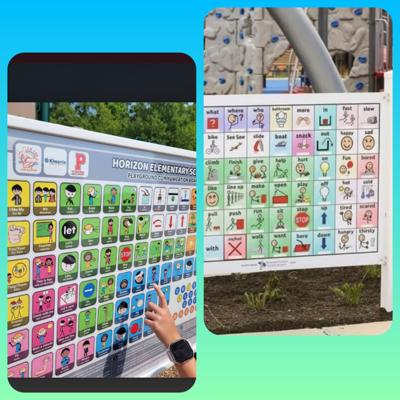DuBOIS — The T.E.D.E. Foundation, a local nonprofit organization which helps raise Rett syndrome awareness, was given approval last week by the DuBois City Council to place communication boards in various areas of the community.
Val Day, who founded the T.E.D.E. Foundation along with her husband, Mike Day, requested that the city allow the foundation, using money it has raised, to place communication boards throughout the city.
“It would help reduce a lot of frustration,” said Day. “If you have any children or you may know of any families, you may see them, they have children that might have a little bit more escalated tantrums. There’s a difference between tantrums and a meltdown, in case you didn’t know what that is in medically complex families. I’m a medical mom and you can learn more about us on our website at tedefoundation.org, who we are in the community, a non-paid nonprofit local organization here in DuBois. And that’s what we would like to do is to provide that for the schools, provide that for the parks, and add an additional one to the park if we can, as soon as we can.”
“If you give us the authorization to work with the T.E.D.E. Foundation, we’ll locate, like she (Day) said, she’ll take care of the signs, but we’ll help her locate where the signs can be so that they can be used in a safe manner, not obstruct anything,” said interim city Manager Chris Nasuti. “The T.E.D.E. Foundation has been instrumental in helping us plan for the park. That new park equipment we’re putting in. The installation is starting tomorrow (last Tuesday). She’s going to be assisting us with the restroom facility at Juniata Lake as well. So they’ve been doing a lot of good work with us and we think these boards would be helpful, but wanted to get council up to speed on what they were doing and authorization to put some of these, specifically in the park. But there will be other places in the community as well.”
The council unanimously gave approval to the T.E.D.E. Foundation to place the communication boards at various locations in the city.
A communication board is a sheet of symbols, pictures or photos that a child will learn to point to, to communicate with those around them, according to information posted on the T.E.D.E. Foundation’s Facebook page.
There are several families including those who have children not just in special educational classes, but in general education who are not able to communicate traditionally through verbal means. They would benefit from this need being met because these students often use a speech-generating device that creates verbal speech for them, according to the T.E.D.E. Foundation.
There are times, however, where the speech-generating device is not always practical, such as when a student goes to play on the playground or participates in a physical education class, where they run the risk of damaging or breaking the device, according to the foundation. In these instances, the students still need the ability to communicate, and without the use of a communication device, these students can no longer do so, and as a result may understandably become frustrated and display negative behaviors. Since communication devices may not be considered practical in these scenarios and the students still require a means of communication, an alternative must be available.
“If we can implement these communication boards in playgrounds, we can create an environment where all children, regardless of their verbal abilities, can collaborate with their peers, express themselves, and make choices. These boards not only benefit non-verbal individuals but also foster opportunities for other children to develop robust communication, promoting language development, a sense of understanding and acceptance among all children,” according to the foundation.
Inspired by their young daughter’s condition, Rett syndrome, and their lifestyle experiences, Val and Mike Day started the T.E.D.E. Foundation to help raise awareness. On May 6, 2021, their daughter, Thea, was diagnosed with Rett syndrome at the age of 2 1/2 years old. By 2023, Val Day said she worked toward a goal to be able to give back to the community by developing the Thea Evzenie Day Encouragement Foundation with the acronym T.E.D.E Foundation (pronounced Teddy Foundation).
The T.E.D.E. Foundation is committed to providing resources in the local community with marginal room for improvements, said Day.
The nonprofit organization receives funds from research grants but also relies on donations from the community, i.e. individuals, businesses, including successful fundraisers.
To learn more about Rett syndrome, and the T.E.D.E. Foundation’s mission, vision and how you can make a difference, visit the website: tedefoundation.org and/or like, share and follow the Facebook page: Tede Foundation and Instagram: tede_foundation.







